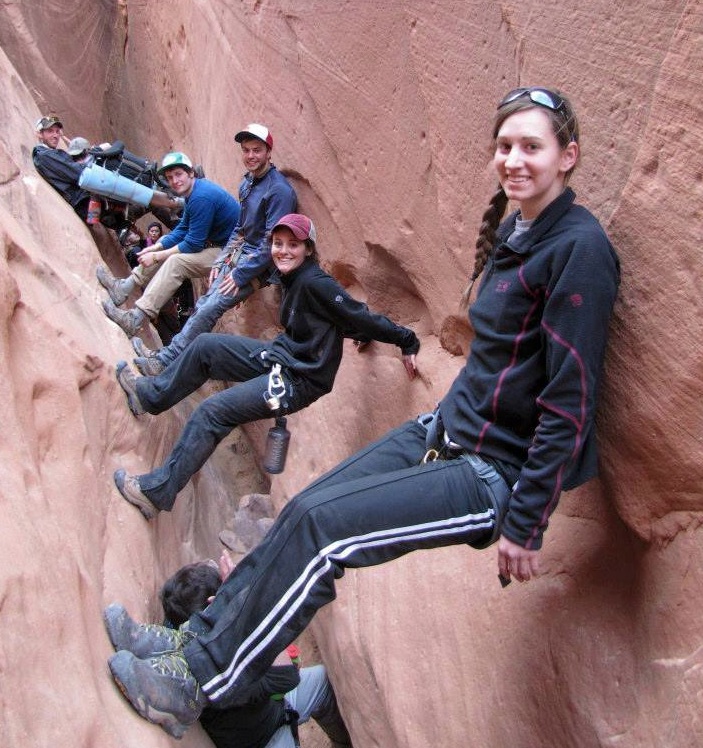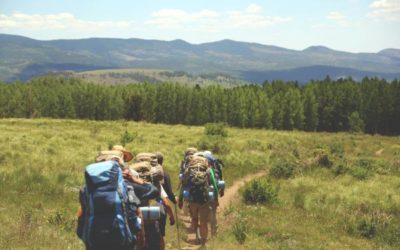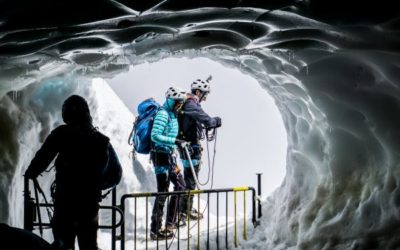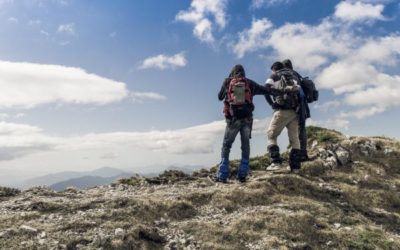What are the criteria for setting up an authentic wilderness experience?
This has actually been researched…
In 1996, wilderness and outdoor education specialists gathered at the Aldo Leopold Wilderness Research Institute in Bradford Woods, Indiana, to explore the daring question of what composes an authentic wilderness experience. After the papers and lectures were presented, a smaller group wrote a report to describe several elements that most outdoor education specialists agreed were the essential components of an authentic wilderness experience. Although this gathering was seeking a secular rationale for outdoor education, their findings coincide with my personal philosophy and theological perspective regarding the transformational character of wilderness experiences.
1. Humility
The first characteristic identified was the way wilderness experiences develop humility in participants. They wrote, “Wilderness is a great leveler, reminding us, perhaps, of our rightful place within the natural world, and engendering an intellectual humility.”[1]
2. Primitiveness
The second is the aspect of primitiveness, which is a quality of experience most city dwellers rarely experience. As an example, the authors quoted Thoreau to illustrate the meaning of primitiveness: “I went to the woods because I wanted to live deliberately, to front only the essential facts of life. I wanted to live deep and suck out all the marrow of life, to live so sturdily and Spartan-like as to put to route all that was not life.”[2] Although this is a very humanistic description, I agree that living in the primitive sense does confront the wilderness traveler with the essentials of life. A Young Life wilderness guide for high school young people in Colorado, communicated well the effect wilderness has on one’s understanding of God and the bare essentials of life:
Being on the trail created raw space for God to work in me and the girls that I guided like nothing else has. I was face to face with myself and face to face with the wildness and adventure of Jesus. The climb doesn’t just teach you, it changes you and makes you into more; it forces you to move. I was honored to watch transformation not only in myself, but also within the lives of dozens of teenagers.[3]
3. Chucking the Clock
Third, we encounter an element of timelessness in the wilderness, which confronts the idol of busyness that poisons the roots of community and fellowship. This is especially a problem in western society where personal progress and ambition is usually valued more than relationships:
Wilderness provides an opportunity to leave behind the frantic pace of modern life, and to experience a far less controlled and perhaps unmeasured pace. Some may find a natural affinity with the ancient rhythms of life, the cycles of the seasons, and the day/night patterns of light, temperature, and activity. Olsen, for example, was convinced that given sufficient time, all visitors to wilderness can experience timelessness and that as they accept the time clock of wilderness, their lives become entirely different. It is one of the great compensations of primitive experience, and when one finally reaches the point where days are governed by daylight and dark, rather than schedules, where one eats if hungry and sleeps when tired, and becomes completely immersed in the ancient rhythms, then one begins to live.[4]Another leader provides a vivid description of how one’s view of community is profoundly changed through small group adventures in the wilderness:
One of my favorite things about the trail is the community it brings. Defenses come down. Barriers are breached. Authentic relationship is possible. Once you get a taste of that, reality changes. Your expectations are higher. Desire comes alive. In this post-modern culture, often marked by isolation and loneliness, the community formed on a backpacking trip meets the core hunger of both teens and adults today.[5]
4. Solitude
A similar quality to timelessness that the symposium identified as a critical aspect of an authentic wilderness experience is solitude. The psalmist declares that because God cares for his creation, he desires for his people to experience solitude so that their lives are fueled by his pleasure toward them. We hear the words of our Creator-God in the psalm: “Be still and know that I am God” (Psalm 46:10). Being still can really push us into a new level of communication with God. For example, one camper named Holly who participated in my church’s outdoor ministry, Mountain View Backcountry, reflected on her week on the trail, said, “I really felt out of my comfort zone when we had a four-hour quiet time.”[6] And Riley summed it up this way after his first solo experience during a week-long trip in the back-country of Colorado: “Solo time = good.”[7]
For young people, wilderness experiences are often characterized by the most uninterrupted amount of time they may have ever experienced in solitude reading God’s Word. They discover that many others (young and old) have been searching for God for millennia, and the Bible contains an account of their quest. Thus, a personal encounter with God through solitude and reading the Scriptures is an indispensable element of wilderness ministry.
5. Caring for Someone Besides Yourself
Lastly, it was agreed at this meeting at Bradford Woods, a final quality of any authentic wilderness experience will forge a more caring attitude among those who tread its paths: “The wilderness visit can induce profound changes in people’s relationship to nature, and in their value system.”[8] In Christian outdoor leadership we call this biblical community and biblical stewardship. Christians are called to excel in caring for creation as well as caring for people. As we explore ways people today can engage the challenges of poverty, violence, differing religions, and the clashing of cultures and civilizations, a prerequisite for significant influence as a leader will require an attitude of care and love for those who are walking in darkness, those who are different from us, or maybe even violent toward us. The wilderness can forge that attitude. Andy summed it up this way after his week-long wilderness adventure: “Something I learned about community from this experience is that even though you’re supposed to pull your own weight, you still have to let people take SOME of the burden off of you.”[9]
Luckner and Nadler present an adventure based learning process model in their book, Processing the Experience, which provides a good synopsis as to why adventure-based learning is so effective. Essentially, here is the sequence of what happens in experiential learning:
1. First, individuals experience some form of disequilibrium or out-of-comfort zone experience by being placed in a novel (unfamiliar setting) like the outdoors.
2. Then within a cooperative and supportive environment…
3. They are presented with a myriad of problem-solving situations in the course of the adventure. This could be as simple as how to stay warm and dry in a rain storm, or as complex as how to get from the bottom of a rock face to the top using newly learned rock climbing skills.
4. This leads to feelings of accomplishment which is un-packed through a…
5. Debriefing process, which promotes…
6. Generalizing and transfer of what has been learned to other future endeavors.[10]
Most people would agree, that the kindling for a good story is usually cut from one’s personal experiences. In re-telling a story, the transformation we speak about is authentic to others because the source of what we speak about is personal. A wilderness experience in a group context is a journey, and the stories that get told for years after such a journey is evidence that something profound has changed in us. Outdoor leaders facilitate such experiences, and by doing so you are not only teaching your group something of great importance to help them mature and become more resilient, you are also creating an authentic environment that will likely change the whole story or trajectory of someone’s life. These kinds of experiences are unforgettable, and even more they leave a legacy of stories that can keep teaching others for generations.




